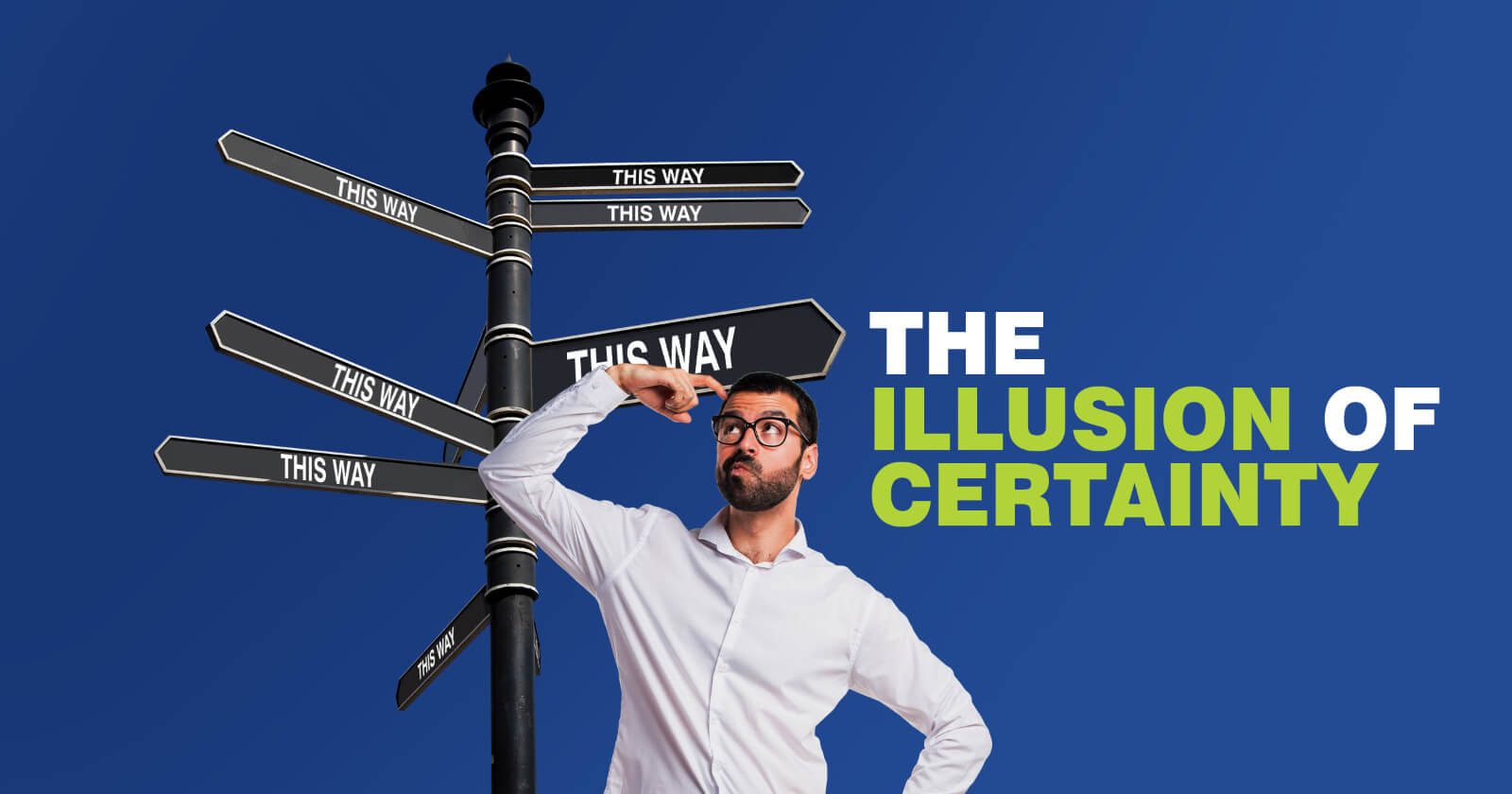The Illusion of Certainty
‘And what you do not know is the only thing you know, and what you own is you do not own, and where you are is where you are not’ – by T S Eliot, ‘East Coker’, The Four Quartets. Are we proficient in expecting the unexpected? Our tryst with COVID-19 and the resultant impact on economies markets and lives vociferously illuminate frailties in our system and buttresses our conviction on the ‘certainty of uncertainty’. Einstein expressed this more eloquently ‘As far as the laws of mathematics refers to reality, they are not certain, and as far as they are certain, they do not refer to reality’. In 1998 Long term capital management (LTCM) collapsed despite being led by two Nobel Laureates in economics Myron Scholes and Robert Merton and by an experienced practitioner in financial markets John Meriwether. LTCM’s strategy were to make convergence trades. These trades entailed finding securities that were mispriced relative to one another, taking long positions in the cheap ones and short positions in the rich ones. The potential cause for LTCM’s debacle was Russia’s default on its Government obligations. As Russia’s trouble deepens, fixed-income portfolio managers began to shift their assets to more liquid assets. The creditors refused to bail out LTCM. The lesson however harsh, reinforces the fact that even the most sophisticated statistical analysis can fall prey to the hubris of causal forecasting.
While we claim to be familiar with risk, luck, fate, uncertainty, probability theory our attitude towards its various manifestation deserves serious introspection. We tend to have a dash of adrenaline on successfully spotting a winner at a derby or successfully identifying a multi-bagger stock with prescience than convention, which nurtures a sense of naïve probity too conceited to listen to the dictates of reason. At times we tend to be nonchalant or rather frugal on availing adequate life, health and property insurance. We adhere to the ‘illusion of certainty’ in monetary matters. Our insatiable demand for economic forecasts is nourished by media in their desperate urge to communicate fastest the latest forecast on GDP, inflation, unemployment with a degree of precision which more often than not deviates from the actual. Edmund Halley’s accurate forecasts in 1682 that the comet would reappear 76 years later on 25/12/1758 has inspired lot of economic forecasters to try forecasting economic events albeit with limited success. Fortunately, the duration of economic cycle is shorter than the periodicity of Halley’s comet. Halley relied on scientific laws but economic predictions are intrinsically less reliable as they depend on human behaviour. The desire for certainty and control over destiny is a deep-seated human characteristic. The difficulty we have in confronting uncertainty and our strong desire to control our own lives, leads to irrational decisions. After 11/9/2001 Americans shunned flights instead they relied on driving to travel which earlier they chose to fly, traffic on the interstate highway rose 5% three months after the terrorist attack. In that period more than 1600 Americans died because of switch from flying to driving, around 50% of the death toll incurred on 11/9/2001. Such behaviour appears irrational. Despite stringent security measures post the terrorist attack, it did not act as a deterrent to substitute driving with flying. Similarly, we encounter clients who had a bitter experience of incurring loss in their mutual fund portfolio hampered by economic events tend to withdraw from mutual funds and invest in direct equities which induces an illusion of better portfolio performance and pampers a feeling of control at the cost of better risk adjusted return.
Coping with uncertainties beyond our control is daunting. When it comes to achieving one’s certain financial goals the focus should be on the process of creating a framework comprising of comprehensive financial planning and goal-based asset allocation, which only will endure the vagaries of uncertainty.

